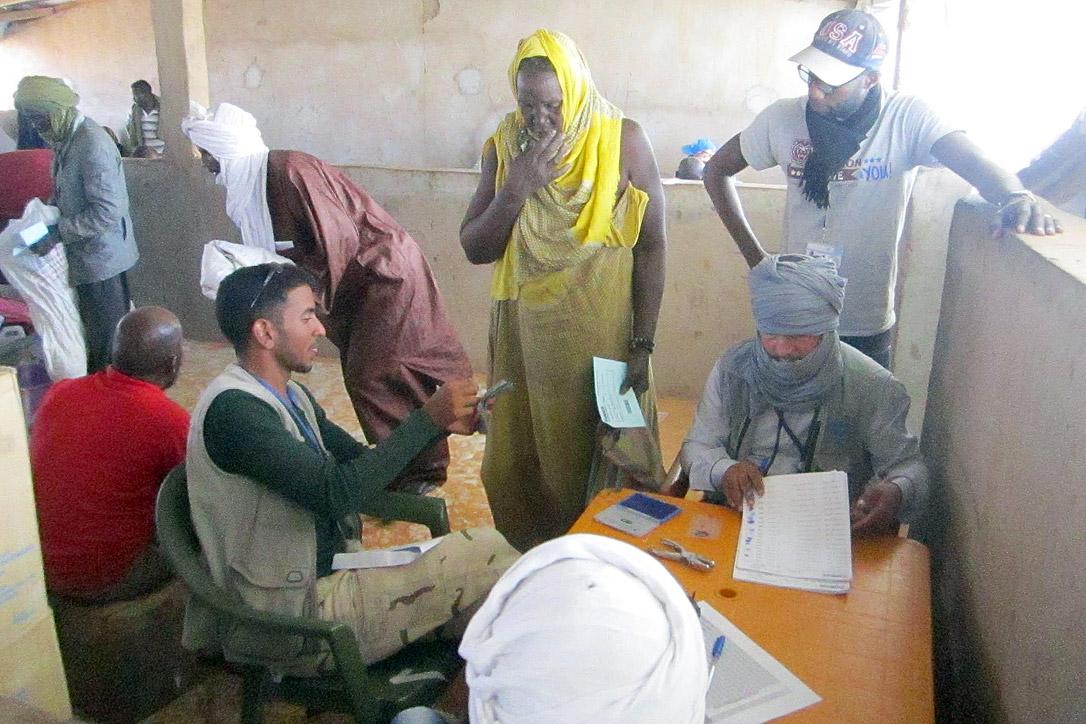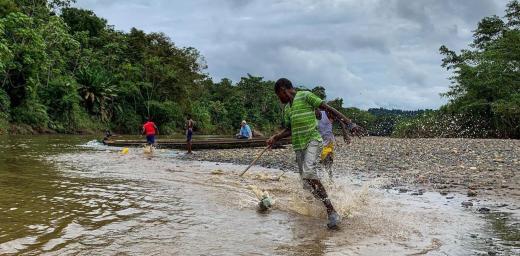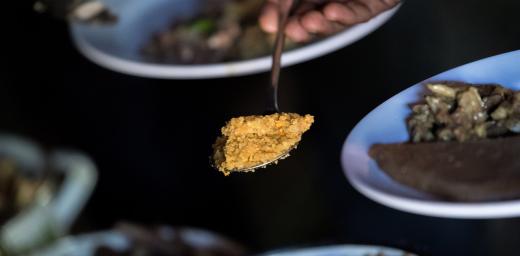LWF to Take Over Camp Management of Mbera, Mauritania

Mauritanians receiving the notification of their changed status at Mbera refugee camp. Photo: LWF Mauritania
“Sign of Continued Confidence and Appreciation”
(LWI) – The Lutheran World Federation (LWF) country program in Mauritania will be responsible for camp management of the Mbera refugee camp in 2015. “This is a sign of continued confidence and appreciation by the UN-system for the work LWF has done in Mbera so far”, LWF Program Officer for Mauritania, Anne Caroline Tveoy, says.
The camp, which is located a two-day drive from the capital Nouakchott and 60 kilometers from the border to Mali, hosts more than 50,000 refugees who fled the violent conflict there in 2011. LWF Mauritania has been assisting with camp management since the camp was originally set up by the United National High Commissioner for Refugees (UNHCR). “In addition to camp management, our UNHCR-funded portfolio includes responsibility for logistics and medical evacuations of the camp’s inhabitants” LWF Country representative Kasongo Mutshaila says.
Re-organizing the Refugee Database
Camp management includes the coordination of humanitarian activities, internal organization of the refugees, cultural life in the camp and complaint mechanisms. One of the tasks in the coming years will be to continue assessing the needs and future perspectives the refugees, which may include plans for repatriation to Mali.
Mbera camp has made headlines in the past for its high number of locals who registered as refugees. According to a joint assessment mission conducted by UNHCR and the World Food Program in 2013, one fifth of the inhabitants in Mbera were actually local Mauritanians. Mbera camp is located in empty desert land where the temperatures during summer go up to 50 degree Celsius. Food and water are scarce in the entire region.
“Do bear in mind that during the period of the assessment, Mauritania was affected by the Sahel drought. This means that the impoverished inhabitants in the local community surrounding the camp were also in need. Therefore, some of them registered also as Malian refugees” Country Representative Mutshaila explains. The scheme became visible when the Mauritanian government started biometric registration and found some of the supposed refugees in the country’s national database.
After consultation with UNHCR, the Mauritanian government decided to rectify the initial mistake by “des-activating” those who are not refugees. 6,000 Mauritanians have already been removed from the refugee database, while another 14,000 are scheduled to follow next year. The process of des-activation is done to ensure that international donations reach the people they are intended for.
Supporting Host Communities, Maintaining Peaceful Co-Habitation
Still, LWF recognizes that the situation in the host communities is difficult, with inhabitants that are almost as vulnerable as the Malian refugees. As a twist of irony, many of these inhabitants did originally come from Mali themselves as refugees, but have since settled and integrated in the local Mauritanian community. “This is a very sensitive case” Mr. Mutshaila says, “and in an area not far from where the Malian chapter of Al-Quaeda has tried hard to recruit young boys and men to join their forces, it is important that we seek to maintain peace and stability between the camp population and the vulnerable host community”.
Instead of receiving food aid targeted at refugees, Mauritanian host communities will benefit from special programs: “The plan is to initiate programs and projects to support host communities so we can sustain peaceful co-habilitation between the refugees and host communities”, Mr. Mutshaila says.





